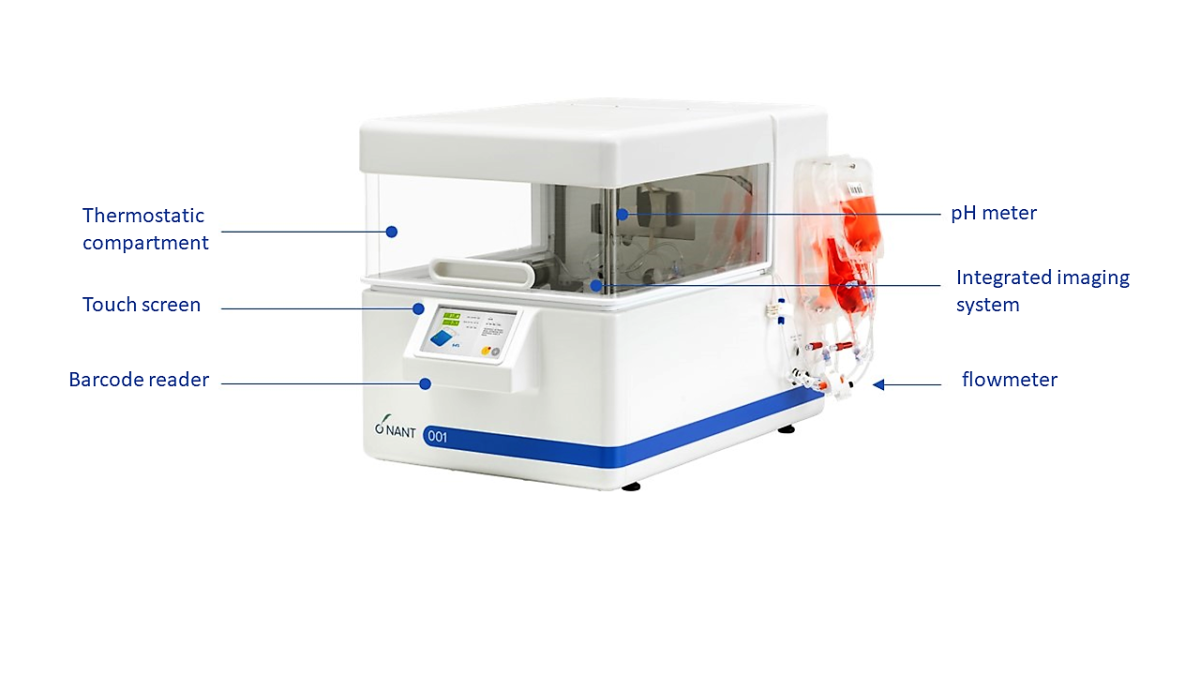The use of closed systems design to overcome the current barriers in cell and gene therapy: NANT 001
Cell and gene therapies gained great attention in the last years, with an exponential increase in the related clinical research. However, the overall process most of the time takes place in a manual mode in open systems (clean room). This means that the manufactory is highly susceptible to errors by the operator, and, at the same time, difficult to scale, resulting in unsuitable in a large-scale clinical use scenario. To overcome these main issues, several novel products based on the design of the closed system have been developed. Closed systems are formed by a sterile internal environment (classified as Grade A) physically isolated from a grade D external environment. these systems allow an improved grade of sterility and the possibility to easily scale-up the production, reducing the costs and speeding up the manufacturing process.
In the recent article published in ASSCA journal, Dr. Mazzarol and Dr. Barchiesi introduced the novel VivaBioCell NANT 001 bioreactor, a closed system designed for the production of cell therapy for osteoarthritis using autologous Mesenchymal Stem Cells (MSCs).
Osteoarthritis (OA) is a degenerative pathology that can result in the total breakdown of joint cartilage and underlying bones. The degeneration of the cartilage, the tissues that line the bone inside the joint, causes a reduction in friction at the joint level, leading to pain and the consequent inability to move the limbs freely. OA is the fourth common cause of disability in the western world; it affects 10% of the adult population, of which 50% are people over the age of 60. To date, there are no therapies able to treat OA in a decisive way: intra-articular injections of cortisone and hyaluronic acid or analgesic therapies are aimed at pain control but not to cure.
In the last few years, cell therapy emerged as a potential breakthrough therapy: several findings suggested that MSCs administration are able to stimulate the regeneration of cartilage tissues and limit the progression of OA. However, to better develop this interesting treatment, various scientific barriers must be overcome, speeding up the research and reducing the costs.
The NANT 001 is a closed system capable of automating the process of expansion and collection of the cellular product in a safe, robust, and traceable way. Composed of a bioreactor and a sterile disposable cartridge, it allows automated cell expansion, in line with the requirements of GMP guidelines. The bioreactor is equipped with a microscope capable of providing images of the cells during the expansion phase: these are processed by the integrated software to give the operator an accurate estimate of the cell confluence. The ability to visually monitor cell expansion results in better process management and therefore greater efficiency, allowing to identify the most appropriate time window for the collection of cells. At the end of the process, the cell suspension is collected in a bottle that, thanks to a sterile disconnector, can be easily separated from the rest of the circuit without compromising the sterility of the material contained. According to dr. Mazzarol and dr. Barchiesi data, the use of NANT 001 during the cell expansion phases leads to increased productivity and a significant reduction of production costs. Compared to the standard manual process, NANT 001 is able to reduce the cost by up to 27% and decrease the hours of work of the staff dedicated to the production of cells by 48%.
Interestingly, the NANT 001 bioreactor can be connected to other closed systems. The connection to isolators can further reduce the costs and speed up the manufacturing, always in a grade A environment, physically sealed from the outside.
The original article is available, in italian language, here.
Recent Articles
- Cell therapy based on neuronal precursors for the treatment of multiple sclerosis 10 January 2023
- How to Improve the Sustainability of Advanced Therapies: The Case of Strimvelis 24 November 2022
- FDA reorganization: a “Super Office” to manage the increasing cell and gene therapy workload 3 November 2022
- GMP Cleanliness Classifications: Deciphering the Differences and Requirements among Grades 12 September 2022
- How to Overcome the Most Common Issues in the GMP-Compliant Culturing of Mesenchymal Stem Cells: Isolation and Automatization 30 August 2022

